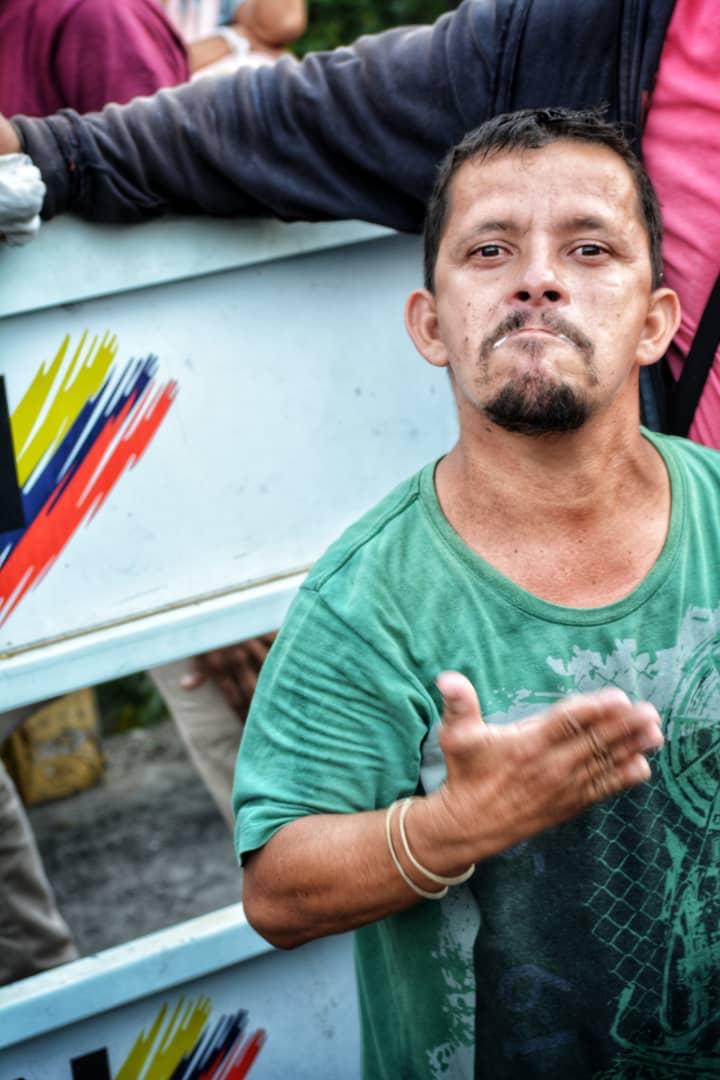The First True Diasporic Demonstration in Our History
I've been in many demonstrations through these years of violence in Venezuela. But what I saw on February 23rd, at the border with Colombia, was different: an entire society fighting with the desperation of those who have nothing else to lose.


Photos by Omar Rondón.
The first time I saw a man die was in January 2010, at Las Americas Avenue, Merida, when a Tupamaro sniper (chavista urban guerrilla) fired upon a group of protesters blocking the road. The protest was a clash between pro-Chávez paramilitary groups and students from Los Andes University, over medical supplies in the university hospital. Shards of concrete exploded as bullets and hit the walls. Lying prone, I just heard “One dead, one dead, one dead!” I was 18 years old.
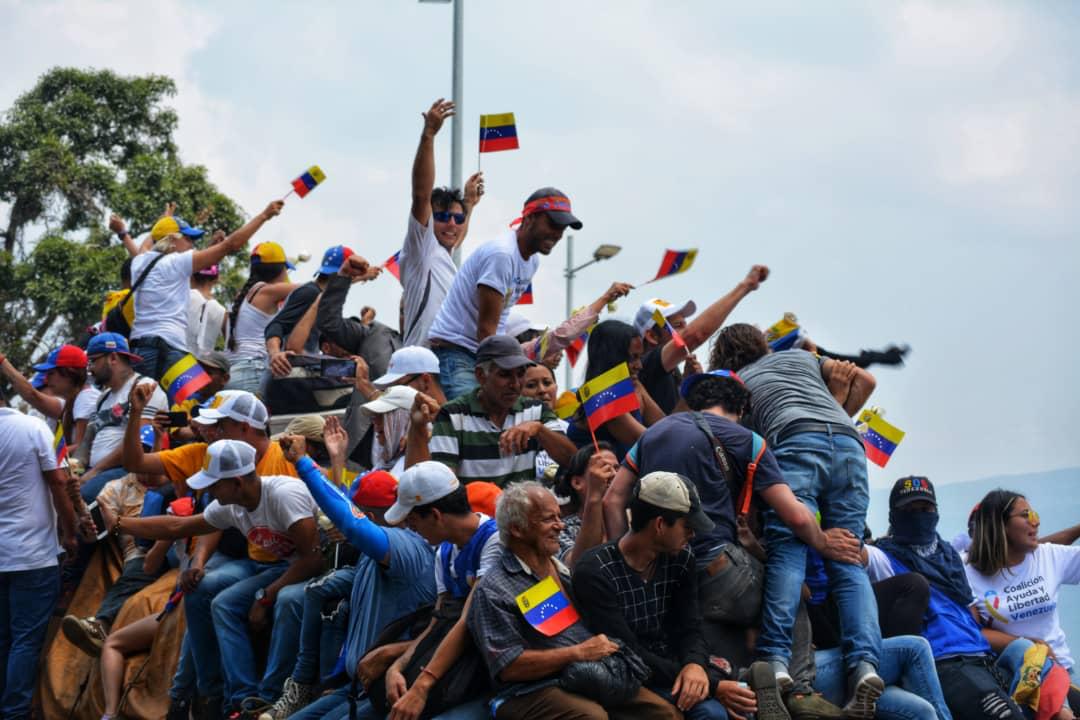
All of them unarmed and crowned with flowers, like the emperors of old as they marched triumphant into their cities.
Nearly ten years later, on February 23rd, 2019, at the Ureña bridge connecting Colombia with Venezuela, I see the fire consume medical supplies we’ve spent a decade waiting for. On the other side, the same colectivos and some National Guard officers attack famished kids, tired, thirsty and shirtless, who throw rocks their way. A column of fire rises to the sky, the muddy moisture of the river glues soot and dirt to the skin. Everything is painful. “There’s fire ahead, mi pana,” one of the protesters tells me as we crouch to avoid the tear gas. All of them were on a truck when the thugs attacked. All of them tried to defend those trucks from the police that came to burn them. They held on for a few minutes and that’s how they salvaged part of the shipment, now safely stored at Colombian Immigration warehouses.
A couple of hours before, at the Las Tienditas bridge, I watched them set out in caravans among cheers. The women sprayed water on the trucks and gave roses to the men on them. They all sang the National Anthem and repeated slogans of freedom, volunteers, doctors and NGOs with the vehicles, but also beggars, hawkers, salesmen, housewives and people who travelled from all over the world. All of them unarmed and crowned with flowers, like the emperors of old as they marched triumphant into their cities. I tried not to think about how everything had a mystified aura of sacrifice, of bulls whose blood would bathe the earth. Everyone on the trucks had someone at the other side, waiting for medicines. Some were returning from exile with their hands full of hope. It was the most sacred mission they had ever accepted.
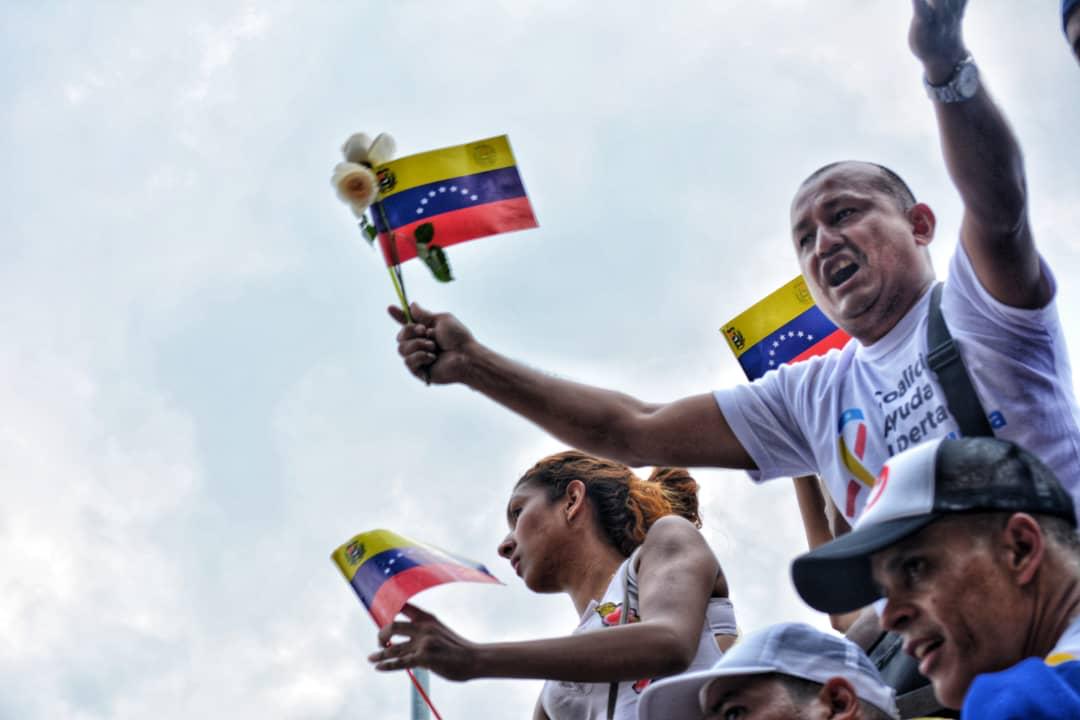
It’s the first diasporic demonstration in our history.
“Where are you from, bro?” I ask everyone I can at the bridge. Puerto Ordaz, Caracas, Trujillo, Barinas, Zulia, Portuguesa, Tachira, Barquisimeto, Valencia, they answer. It’s the first diasporic demonstration in our history. Many are boys who live in the streets or workmen from Cucuta. Others are ex-prisoners, hawkers, shoe shiners, farmers, glass cleaners, GNB deserters, many with small children on the other side of the line. Their ribs stuck out under their skin with every breath. They spray vinegar on their faces. Many are malnourished, dirty and sad, they attack with the powerlessness of those who have lost everything, speaking of treason, of opposition leaders who were absent right then, of international authorities who showed up just for the press. All of them prey of an unforgiving sense of orphanhood.
“If they don’t kill us on this bridge,” says a boy with the face torn by pellets, “they’ll kill us tomorrow in hospitals if these medicines don’t get through. They’ll kill our newborn children when we don’t arrive with this food.”
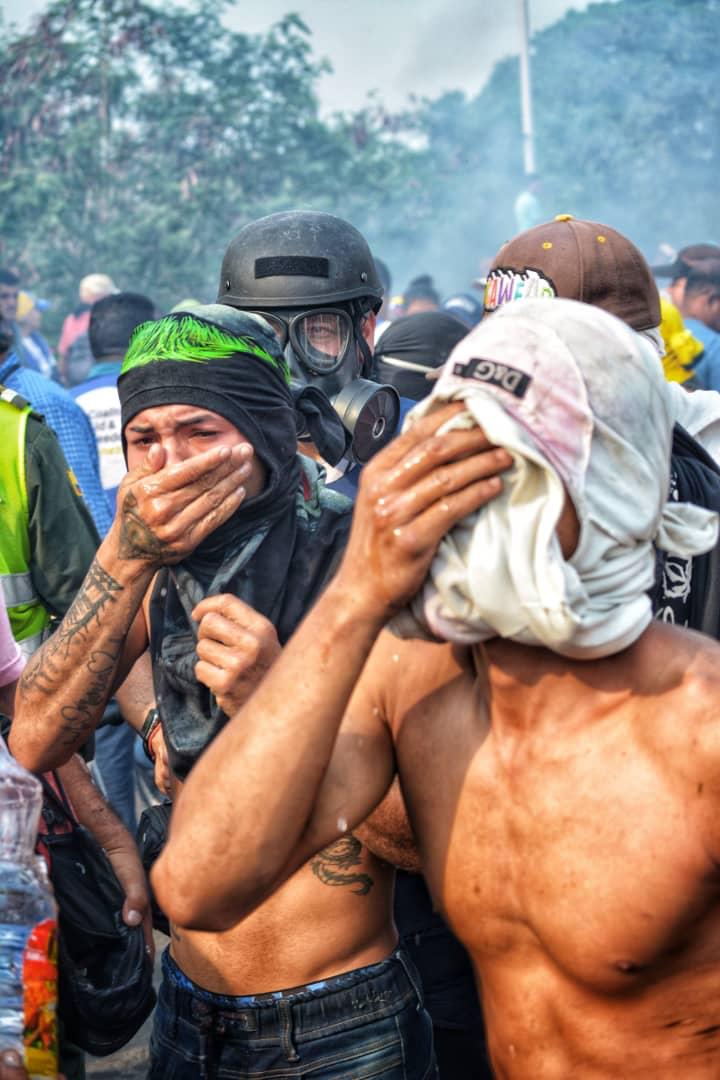
“If they don’t kills us on this bridge,” says a boy with the face torn by pellets, “they’ll kill us tomorrow in hospitals.”
A barefoot boy with bleeding fingers squats eating moldy bread, drinking from a Colombian paramedics’ water bag. I approach him. “I’m 18, from Merida,” he says. “Brother, my aunts took me from there when I was seven because I had a Colombian ID. I haven’t seen my mom in five years, she has diabetes. I thought if I accompanied the aid, I could find some insulin to give her. But these sons of bitches burned it all. You want bread, bro? I have enough for two.”
From up on the bridge, I can see the kids below picking stones from the river, carrying them in bags uphill. There’s no molotovs, nobody has gasoline or bottles, nobody was prepared for this. Colombian authorities are deployed to tend to the wounded. “They’re firing ball bearings, marbles, screws,” an astonished policeman tells me. “It’s awful how much they hate you, how your own soldiers fire against you when you just want to solve your people’s problems.”
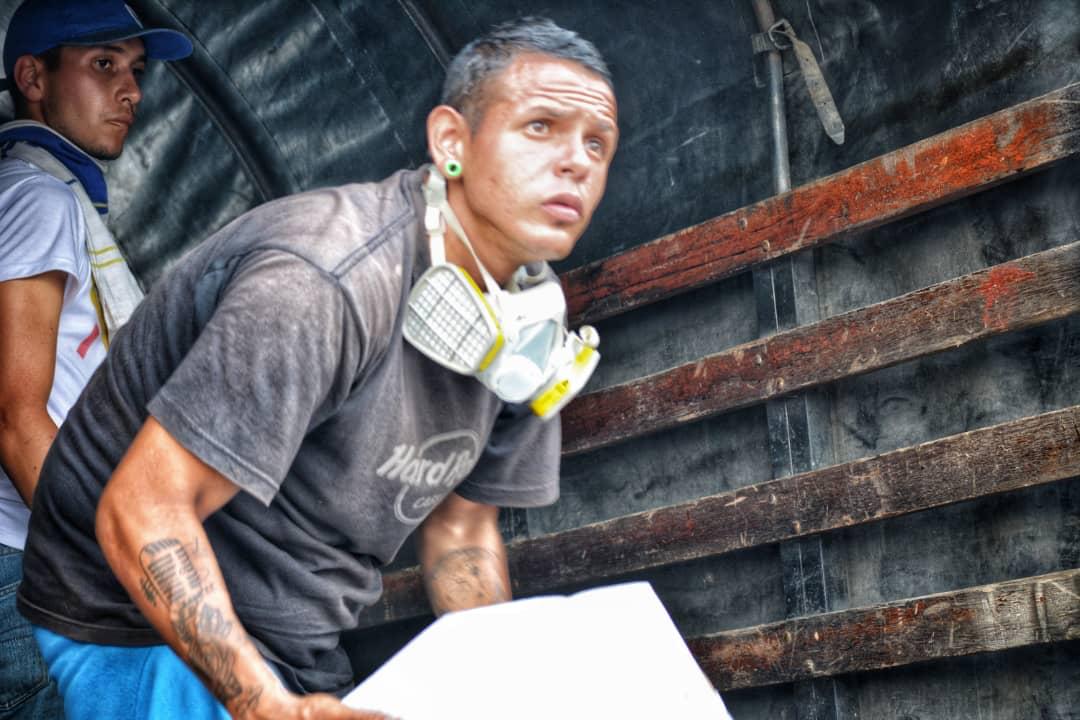
Nobody sings, everyone fights out of grief from everything they’ve taken.
I was in the student barricades of 2014 and followed the shield-bearer kids when they faced armored cars in 2017. In all of those struggles, people sang, ate and drank thinking we’d be finally free the next day. Today, we kept trying even though the other side always responds with bullets. Nobody sings, everyone fights out of grief from everything they’ve taken. They pushed us to the edge of our world, to the very border of our home, to burn the ships that’d sail us back.
The bull burns in the middle of the bridge and the flowers on our heads are now a handful of ash.
Caracas Chronicles is 100% reader-supported.
We’ve been able to hang on for 22 years in one of the craziest media landscapes in the world. We’ve seen different media outlets in Venezuela (and abroad) closing shop, something we’re looking to avoid at all costs. Your collaboration goes a long way in helping us weather the storm.
Donate


